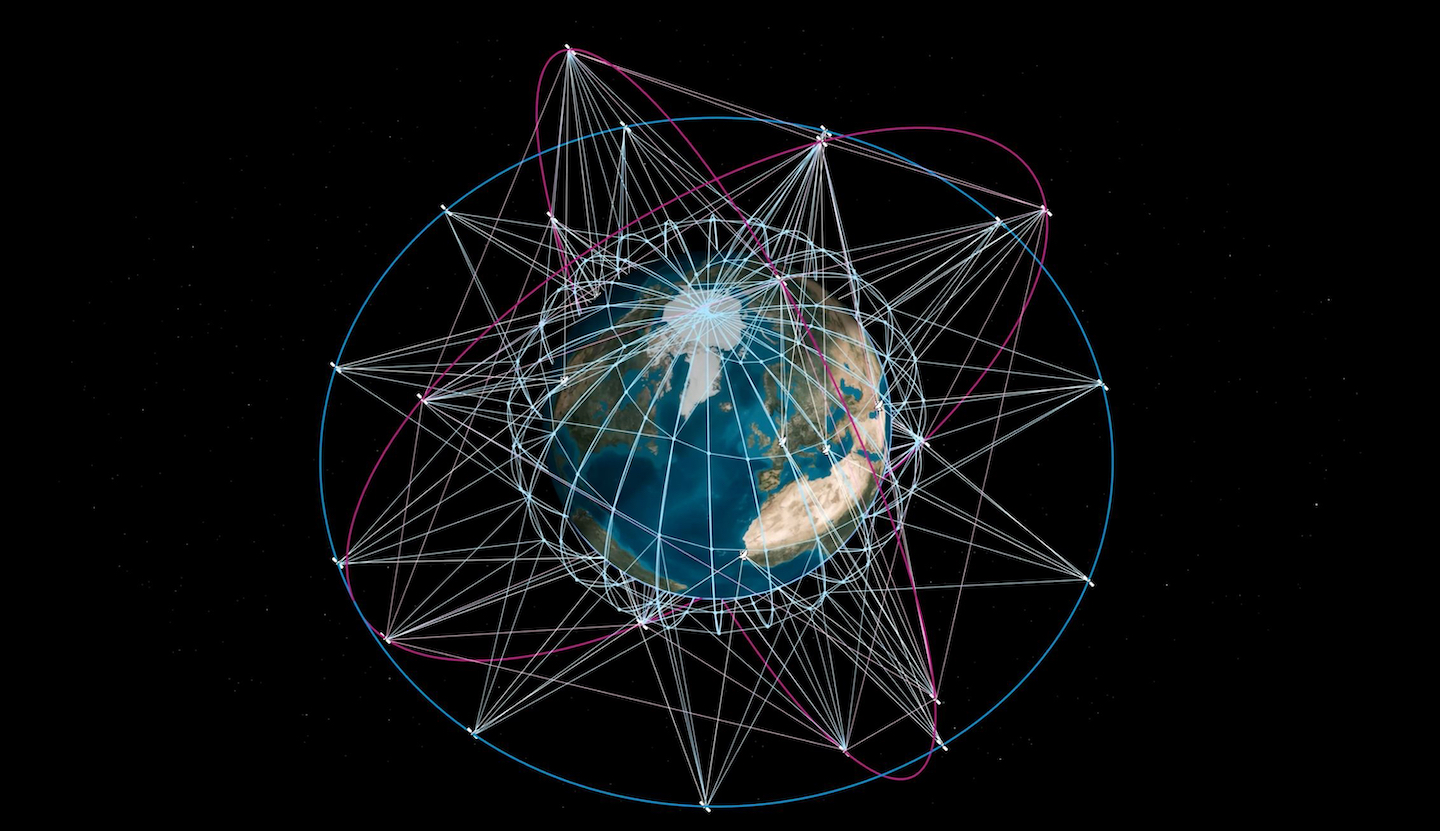Latest News
Europe Taps Group Led by Eutelsat, Hispasat, and SES to Build IRIS² Constellation

Rendering of an inter-connected, multi-orbit constellation. Photo: SES
The European Commission selected a team led by Eutelsat, Hispasat, and SES to build IRIS² — Europe’s future multi-orbit satellite constellation.
The three European satellite operators will lead a consortium called SpaceRISE, which includes European subcontractors: Thales Alenia Space, OHB, Airbus Defence and Space, Telespazio, Deutsche Telekom, Orange, Hisdesat, and Thales SIX.
With this news, the procurement enters its final phase and the European Commission said it expects to sign the contract by December 2024.
IRIS² will be Europe’s third flagship space program after Galileo and Copernicus. It is planned as a constellation of 290 satellites in both Medium-Earth Orbit (MEO) and Low-Earth (LEO) to provide secure connectivity services to the EU and its Member States, along with broadband connectivity.
According to the EC, it will be a 12-year contract for a public-private partnership to acquire the satellites and ground segment to provide government services by 2030 and enable commercial services. It will be funded by a combination of EU, European Space Agency, and private financing from the three satellite operators.
Investment in the constellation and its nature as public-private partnership could influence the next-generation of Eutelsat OneWeb and future versions of SES’s O3b mPOWER.
Eutelsat CEO Eva Bernke said the constellation will complement and enhance Eutelsat’s existing LEO capabilities. “The IRIS² programme is a powerful extension of Eutelsat’s commitment to advancing Europe’s digital sovereignty through sustained investment in multi-orbit technology to deliver multi-layered, low-latency networks, which are essential to Europe’s strategic resilience,” Berneke said.
SES CEO Adel Al-Saleh commented: “The IRIS² system is aligned with SES’s multi-orbit network and underscores our commitment to advancing our MEO capabilities, as well as having access to LEO orbit.”
Analysys Mason Research Director Lluc Palerm-Serra told Via Satellite this program is “critical” for the European space industry to develop technologies for LEO while lowering the risk.
“This is very exciting as the commission has expressed interest in incorporating new concepts such as 3GPP standards and regenerative payloads which can be something that can help IRIS² differentiate from other constellations and push the envelope of the whole industry,” Palerm-Serra said.
“Europe needed sovereign access to LEO capacity and this is one of the main purposes for IRIS², together with supporting the development of the European Space industry,” he noted, comparing it to U.S. government contracts with SpaceX and Starlink, and Canada’s support for Telesat Lightspeed.
The award is not a surprise as SpaceRISE was the only consortium negotiating with the commission. But Palerm-Serra noted it took several iterations on the scope of the agreement to reach this deal.
Stay connected and get ahead with the leading source of industry intel!
Subscribe Now